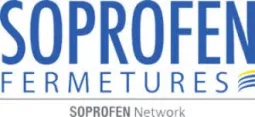
Spider Silk Tensile Strength and Toughness


Solution
- Software-controlled force tester and software
- Lightweight vice grips with rubber jaw face
- Matched loadcell to expected loads for optimum accuracy
Benefits
- Simple and quick test process once routine created
- Flexibility to write programs to thoroughly research the domain
- Data display, handling and capture essential for academic research
The Mecmesin machine is a great piece of kit – it has allowed us to move forward with our research in a very productive way, and we are grateful for the excellent technical support that has come with it.
Dr Sara Goodacre, Assistant Professor, Faculty of Medicine & Health Sciences
The University of Nottingham
Requirement
The University of Nottingham is a global education facility – with campuses in the UK, China and Malaysia.
The School of Life Sciences, within the Faculty of Medicine and Health Sciences, has a depth of expertise in molecular and cell biology, biochemistry, genetics, microbiology, pharmacology, physiology, anatomy and zoology, which puts the University of Nottingham at the forefront of biological and medical science research.
One project is engaged in molecular genetic studies of spider silk, knowledge which has relevance in many spheres from pure education to future engineering applications.
The ‘SpiderLab’ team works with colleagues across the University, including the Nanotechnology and Nanoscience Centre and had the requirement to test the physical properties of particular types of this natural protein.
Although the raw materials are produced by some of the largest members of the infraorder – eg Mexican red knee tarantula (Brachypelma smithi) – the fibre test specimens are typically only a few tens of microns in width.
Therefore the solution required a delicate yet secure gripping in addition to the highest levels of accuracy for valid research data.
Solution
Mecmesin supplied a computer-controlled test stand, with fixtures and an appropriately rated loadcell, chosen to optimise resolution at the maximum expected tensile forces.
Emperor™ software controls the test procedure and the programming environment allows specific calculations to be performed to comprehensively characterise the performance of the silk sample.
Measurement of rate of extension, average load over certain extension ranges and work performed as well as elongation and load at break are recorded.
This extensive analysis provides insight into the variability amongst silks (and between strands of the same silk type).
The library files ensure the same extension test is able to be repeated a number of times for the same fibre, or ‘bundles’ of fibres which most closely replicates the material’s natural ecological use.
Securing of the test sample is achieved by means of bonding the fibre or fibres to a card ‘frame’, which is cut in two prior to the test. Lightweight grips – spring-loaded clamping for the upper and rubber-faced jaws in the lower - complete the precise specification.
Test equipment
- MultiTest 2.5-i computer-controlled test stand
- 2 N intelligent loadcell
- Lightweight mini vice grip
- Lightweight double action vice grip with rubber-faced jaws













